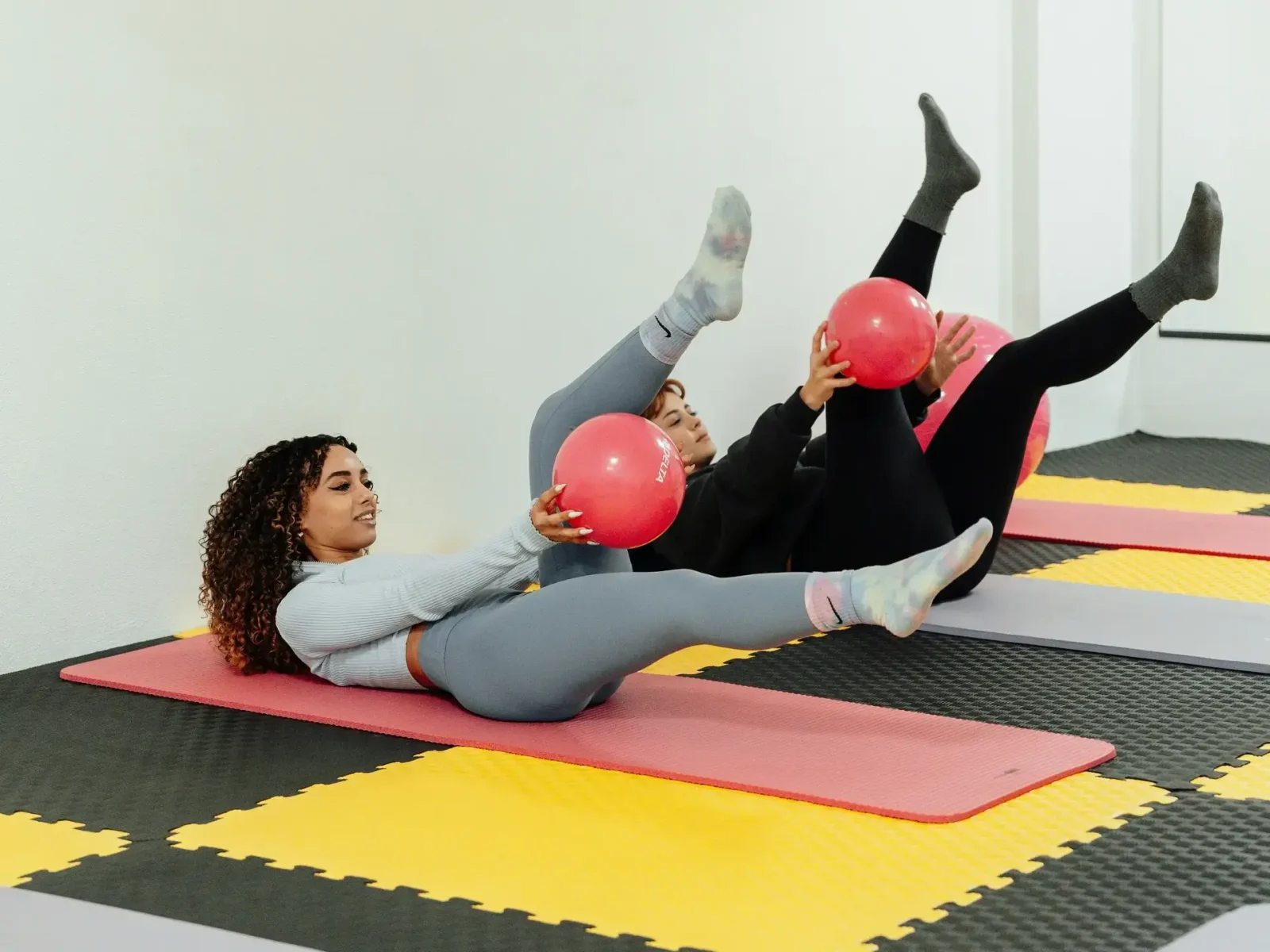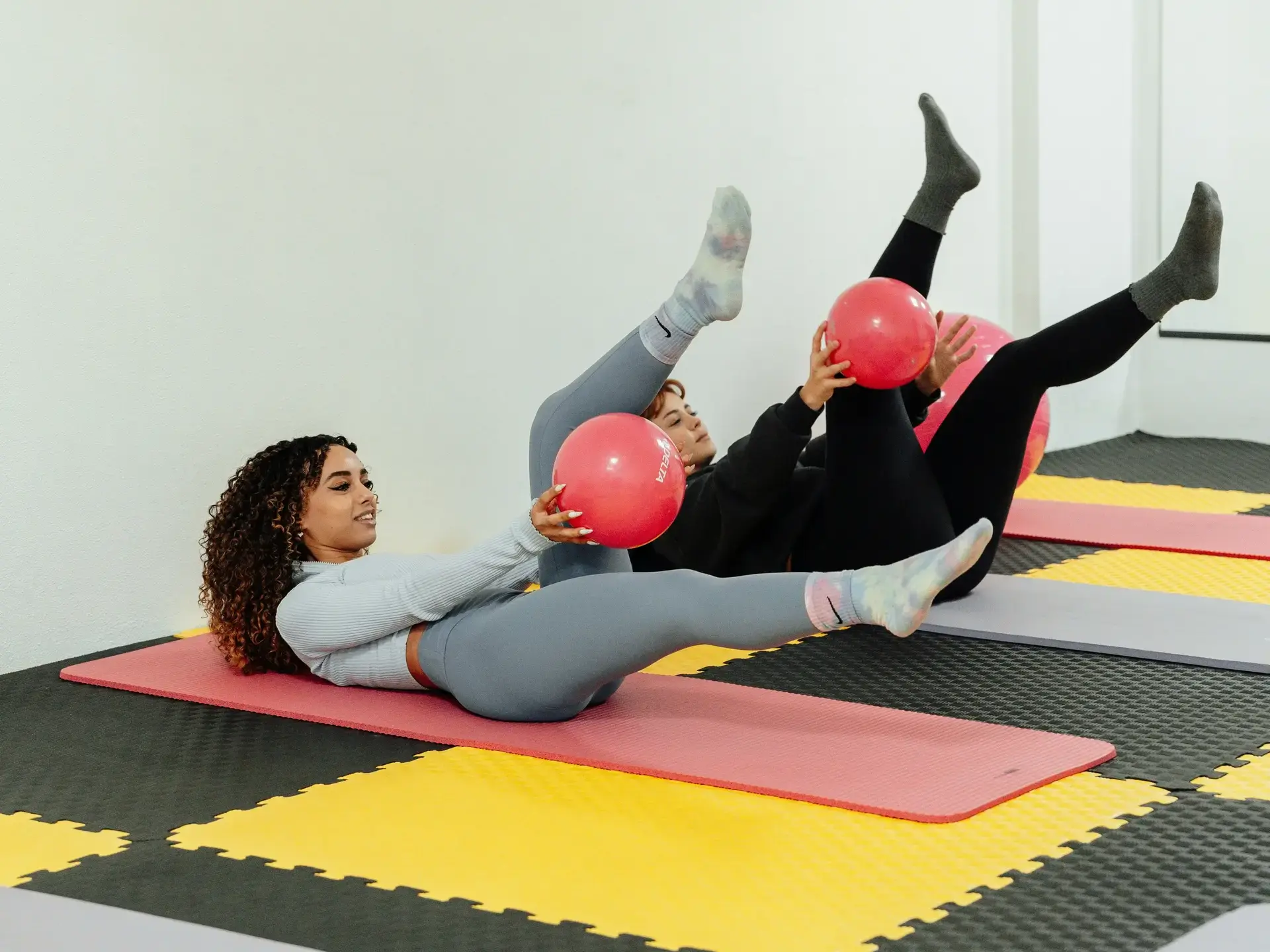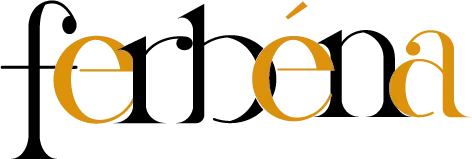Let’s Learn About Clinical Pilates and Postnatal Pilates


You will likely have heard the term Pilates (pronounced pill-LAH-tease) in recent years. But what exactly is it?
The Origin of Pilates – in the Early 1900’s
Pilates is a form of exercise and strengthening routines that were developed by Joseph Pilates way back in the early 1900’s during World War I. German-born Pilates was placed in an English internment camp during the war and developed a series of floor exercises which helped him and other internees to build strength and overcome injuries. Necessity is the mother of all inventions and Pilates used the scant items that were available in the camp, like bed springs, to strengthen his and other internees’ bodies.
After the war, Pilates moved to New York City and, with his wife Clara, officially developed the Pilates method of exercise, which included Pilates exercise equipment.
The Use of Pilates Today
Today, Pilates is used around the world to strengthen and tone muscles, heal from injuries and improve breathing.
What is Clinical Pilates?
Pilates classes are usually by a Pilates instructor, who has training in the Pilates method of exercise. In contrast, Clinical Pilates classes are delivered by someone who is both a Pilates instructor and a qualified physiotherapist, giving them a much more detailed understanding of how the body works, what happens when it’s injured and how to heal from injuries.
Clinical Pilates is ideal for athletes who wish to reduce their injury recovery time and for everyday people who wish to tone, strengthen, improve flexibility, improve spinal mobility, improve bone density and improve their technique in certain movements, such as dancing or golf.
What is Postnatal Pilates?
Also known as ‘mums and bubs classes’, Postnatal Pilates are exercises that have been specifically designed for women who have recently given birth.
Postnatal Pilates helps to improve core strength, as well as strengthen the pelvic floor, the upper body and the lower body, all of which are pushed to their limits during pregnancy and birth.
Postnatal Pilates classes are delivered to groups of postnatal women. Their babies and other children are welcome in the class.
Propel Physiotherapy’s Postnatal Pilates classes are delivered by Aileen, a physiotherapist who is a mother herself, so she understands how women’s bodies change as a result of pregnancy and childbirth. Aileen modifies exercises to suit each woman and the unique journey to motherhood that they and their body have gone through.
People call me Cath! Living the minimalist lifestyle and love minimalist style, beauty and wellness especially YOGA. So hardly support mental health matter of insecurities.




Oh this history lesson of Pilates was super interesting. I do yoga at home and some Pilates. I hope to expand and do even more.
Allie of
http://www.allienyc.com